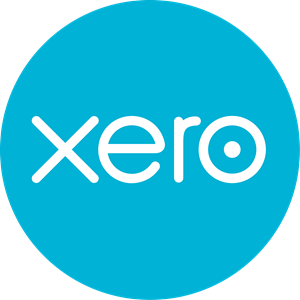
How I Started A $250K/Month A Home Care And Nursing Service Provider
Hello! Who are you and what business did you start?
My name is Gareth Mahon. I’m the co-founder and CEO of The CareSide, a home care and nursing service provider for elderly individuals in Australia. We are based in Perth, Australia.

I often like to compare our business to a plumber’s. It’s not the flashiest work. But it’s critical. When you need the help of a plumber, you really need it. The same goes for us. Our customers reach out to us when they need assistance caring for an elderly or disabled family member. In Australia, it’s common for seniors to spend their twilight years living at home rather than transitioning to nursing care facilities. That’s where we come in. We provide services such as nursing care, companion care, and personal care. Our goal is to help seniors maintain their autonomy so they can enjoy themselves and continue to be productive members of society.
We launched our company in 2017. Over the past 3 years, we have scaled to $5 million in revenue.
What's your backstory and how did you come up with the idea?
After reading The 4 Hour Work Week by Tim Ferriss, I was inspired to create a business that could be run from anywhere in the world and utilize the best of international resources, all through the magic of the cloud. The home care services industry was going through major regulatory changes around 2016 in Australia. Opportunities were opening up and I wanted a slice of the action.
We take a data-driven approach to our sales on marketing. If a channel isn’t generating leads and new customers at a profitable rate, then I will stop investing in it.
I previously had senior management roles in several large organizations including ANZ Bank and KPMG. Although I was compensated well and had a lot of responsibility, these jobs required me to work long hours. I also had to travel frequently to meet with clients. Starting my own company has provided me with greater flexibility. I'm in control of my schedule. If I want to take a day off or go travel with my partner for a week, I can do that. Ultimately, it was a book that motivated me to pursue this new lifestyle by starting my own business.
Oddly enough, I don’t have any experience in the home care industry. However, my business partner is a registered nurse. Most of her family members are medical specialists. This has been invaluable because my business partner knows how to care for people and is familiar with the healthcare regulations in Australia. This means I can focus on other aspects of the business, while she can make sure our services meet the needs of our clients.
Take us through the process of designing, prototyping, and manufacturing your first product.
We are a service-based company so there was no need for designing a prototype or MVP, as is often the case with companies that sell hardware or software. Our product is our time. This allowed us to self-fund the company. We never had to raise capital from outside investors. The price of bootstrapping is slower growth, but you also learn to be more resourceful and make every dollar stretch.
The biggest startup costs we faced, in the beginning, were administrative ones. We hired a consultant to help us apply for the government licenses we needed to provide home care services. In our first year of business, we were audited seven times by different agencies! It was a very bureaucratic process to go through. While the audits were stressful, they allowed us to learn about what our competitors are doing and how we can improve our operations.
Describe the process of launching the business.
We aimed to have a fast launch and be able to take on new clients within a month.
We first built the website on Squarespace, as it was easy to get started. Then we started advertising in local newspapers, which was terrible, as we got virtually no leads from them. After 4 weeks we started digital marketing and immediately started to get new leads into the website.
We put on about 3-4 clients per month for the first few months until our marketing started to mature, and pretty soon we grew new leads by about 20% each month. We built everything on spreadsheets for the first 12 months as we fine-tuned processes.
After that, we started building systems in Google Apps, and 12 months after that we switched to building in Node.js, which is far more scalable, fast, and secure. We now have a custom-built CRM/ERP with over 300,000 lines of code that automates everything from prospect management to staff payroll.
At the 3 year mark, we changed our website architecture to Webflow which is more powerful and customizable than Squarespace. I think fast iterations are the most effective ways to scale up. Build just enough at each stage without getting bogged down.
Since launch, what has worked to attract and retain customers?
We take a data-driven approach to our sales on marketing. I measure every channel by LTV/CAC. If a channel isn’t generating leads and new customers at a profitable rate, then I will stop investing in it. By comparison, if a channel is generating a positive ROI, then I will double down and invest more in it.
You have to get a lot of things right, and it only takes weakness in one area to put the brakes on business growth.
Our sales are well optimized. We have a 95% conversion rate. This is a very important point for us. If we get a lead, we will convert them. Once we have clients, they very rarely leave us, except through death.
On the marketing side of things, we are still iterating. We initially invested in advertising in local newspapers. However, this wasn’t fruitful. We didn’t land a single customer after spending more than $5,000 on ads! We quickly learned that our business is the type that customers only search for when they need it.
So far, we’ve had the most success in attracting new customers via Google Adwords and Facebook ads. We have gotten smarter about the negative keywords we use in our Google PPC campaign, which has allowed us to avoid wasting money. The advantage with Google and Facebook ads is you can get traction almost immediately. We learned quickly the types of keywords that generate leads and sales. But we also don’t want to be reliant on one marketing channel. That isn’t sustainable.
We are hoping that our SEO efforts will be even more successful. We are a relatively new company and SEO takes time to gain traction, but we’re starting to see some encouraging results. Here’s a screenshot of our website’s organic over the past 6 months:

My recommendation to other founders is to learn about sales and marketing. That doesn’t mean you will have to do the day-to-day work yourself. By understanding how they impact your business and the skills needed to execute both, you will make better hiring decisions.
How are you doing today and what does the future look like?
Today our profit margins are strong. Over 20%. And our revenue has been increasing at 15% per month and profit at 8% per month averaged over the last 3 years. Costs have stabilized and are scaling in proportion to new revenue due to the extensive automation of back end systems. With heavy process automation, new revenue predictably converts into increased profit.
We allocate about 4% of gross revenue to marketing, the bulk of which goes to digital marketing. This is the most important and effective type of marketing for us. We are in the midst of expanding to other states right now. We will be opening 2 new offices in other states over the next 2 months. The first will be in Adelaide, which is located on the southern coast of Australia. We plan to continue to keep growing at the current rate, and a key component of that strategy is more effective SEO.
Through starting the business, have you learned anything particularly helpful or advantageous?
You have to get a lot of things right, and it only takes weakness in one area to put the brakes on business growth. The most important areas to focus on first are marketing and finance. You won’t get any sales without effective marketing and you can’t stay in business without good cash flow.
I think at the start it is good to be directly involved in all areas of the business so that you can learn how everything works in detail. Later you can leave functional areas such as accounting, legal, sales, technology to the experts. But it is very important in the beginning to be closely involved so that you know things are on the right track.
Don’t build monolithic systems too early. Working with spreadsheets and documents works for a long time. Until the business processes and workflows are well known. Then they can be put into IT systems for robustness and scalability.
What platform/tools do you use for your business?
Since we are frequently audited, we have to be able to provide financial records that we can defend. This means it’s really important we have all of this information tracked. We use an accounting software platform called Xero. It helps us keep track of invoices, sales tax, expenses, and the overall financial health of the company.
I use CanIRank’s keyword research tool to track our SEO efforts. I like CanIRank because it provides me with weekly progress reports about our keyword rankings on Google. Since I know which keywords generate the best ROI with Google Adwords, I focus on improving those on the SEO side of things. I also track our link building efforts with Moz, which is another SEO software tool.
I’m a big fan of Google Suite. Google Docs, Sheets, Slides, etc. make it easy for everyone on our team to collaborate and store information in the cloud.
What have been the most influential books, podcasts, or other resources?
The three most influential books have been:
The Four Hour Work Week. This book inspired me to start a company to have more flexibility, work-balance, and autonomy over my schedule
E-Myth Mastery: The Seven Essential Disciplines for Building a World-Class Company. This book helped me change my mindset from someone who manages a department or small team, to the perspective of a CEO. It has some valuable lessons on how to scale operations and set up repeatable systems.
The Millionaire Fastlane: Crack the Code to Wealth and Live Rich for a Lifetime! This book inspired me to take more control over my finances to become financially independent.
The business podcasts I enjoy are:
Y Combinator lecture series. It includes lots of actionable advice from other experienced founders.
Revisionist History. This podcast is run by Malcolm Gladwell. It’s something I listen to when I want to take a break from the demands of being CEO.
Advice for other entrepreneurs who want to get started or are just starting?
Yes. You get what you focus on. Whatever area of the business you pay attention to is the area of the business that will do well. So choose wisely! Personally, I would put most attention into financial management and marketing plans.
Are you looking to hire for certain positions right now?
We are always looking for more frontline staff! For us, that means experienced caregivers and nurses.
Where can we go to learn more?

Download the report and join our email newsletter packed with business ideas and money-making opportunities, backed by real-life case studies.

Download the report and join our email newsletter packed with business ideas and money-making opportunities, backed by real-life case studies.

Download the report and join our email newsletter packed with business ideas and money-making opportunities, backed by real-life case studies.

Download the report and join our email newsletter packed with business ideas and money-making opportunities, backed by real-life case studies.

Download the report and join our email newsletter packed with business ideas and money-making opportunities, backed by real-life case studies.

Download the report and join our email newsletter packed with business ideas and money-making opportunities, backed by real-life case studies.

Download the report and join our email newsletter packed with business ideas and money-making opportunities, backed by real-life case studies.

Download the report and join our email newsletter packed with business ideas and money-making opportunities, backed by real-life case studies.












